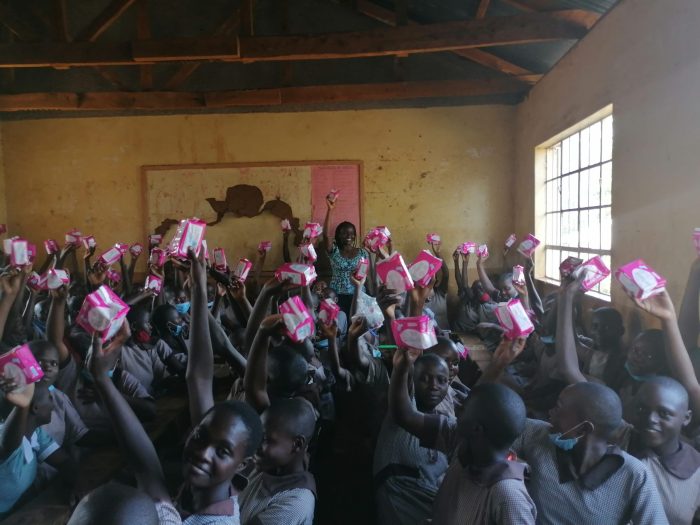Addressing barriers to accessing sexual health services among teenage girls in Western Kenya

Daisy Ungaya (2020, African Studies), 2021 volunteer
This project was conducted over a period of six weeks and three days in the middle of an academic year. It was conducted in Western Kenya, Kakamega county specifically in Ikonyero village. The first three days were for mapping out and surveying the area. I first sought permission from the area chief as well as the members of the clergy who are the gatekeepers in the community so that they would inform parents and guardians of what would happen in the selected schools. Thereafter, I sought permission from the chosen schools.
The project addressed everyday challenges that teenage girls face especially during their monthly periods as well as general female hygiene. It targeted four hundred and fifty girls from four different learning institutions. From my personal research and after survey, I found out that poverty is the main reason why girls miss out on schools during their menses. The headteachers confirmed that on average, a girl is likely to miss at least 5 days of school monthly because of periods. Some even go to the extent of exchanging sexual favours with local motorbike riders for sanitary products. As such, Kakamega County recorded the second highest number teenage pregnancies second to Nairobi in the first quarter of 2021. I confirm this by noting that during my random visit at the County hospital, of the forty-seven new mothers, only five were above the age of twenty.
However, I also argue that various factors have contributed to a sharp rise in teenage pregnancies in the region especially school closures due to Covid and the sharp increased rate in poverty levels.
From the engagements, I discovered that the girls lack mentors and people to look up to. As such, I teamed up with a group of local women (Able Women Group) and capitalized on the one-hour bi-weekly Guidance and Counselling sessions that schools have set aside. We had open conversations with the girls regarding sexual behaviour. We also urged them to work hard as well as to tap into opportunity outside their locality. Activities during the project were made to be very open and easy to participate in. For instance, the girls anonymously wrote their questions and concerns, and they were responded to accordingly. Above all, we encouraged them to embrace monthly periods especially because we noted that majority of the girls are ashamed to talk about it. Hence, I explained to them that it is normal and okay to experience it. Thereafter, I distributed a total of 850 sanitary towels and left 3 bales in each institution for emergencies which would last the girls three months.
For the weeks that the project was running, the schools recording a diminishing number of girl child absenteeism with at most 2 girls missing school. Finally, am in conversation with the County Government health department where am tabling a bill which will make sanitary towels available to these students.